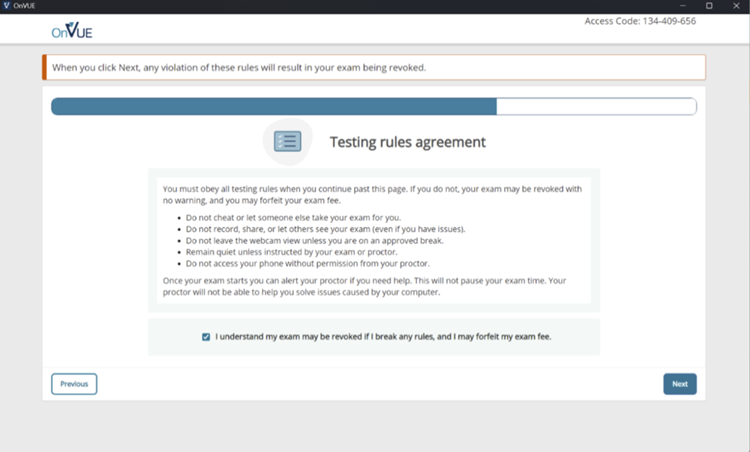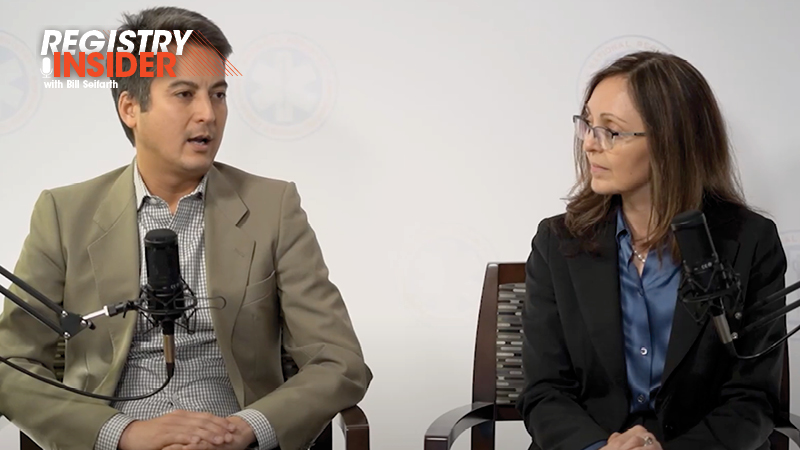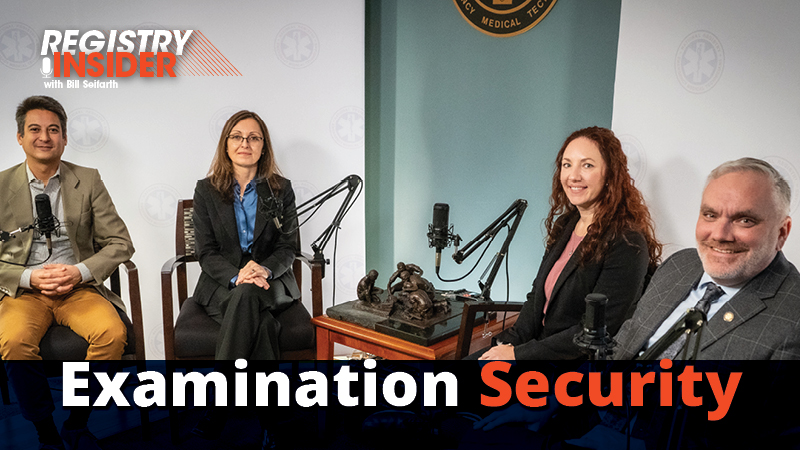Examination Security
To maintain our Purpose, Vision, and Mission, the National Registry prioritizes examination security to uphold validity and protect the public.
Candidate Responsibilities
Before submitting a National Registry application and taking a certification examination, candidates must review and agree to the key responsibilities outlined below.
Examination Agreement
Application Attestation
I, [NAME], hereby affirm and declare that all the information provided in this application is true, complete, and accurate. I understand and agree that any false statements, omissions, or misrepresentations made in this application may result in the denial of my application, invalidation of examination results, or revocation of National Registry certification. I understand that this attestation, when submitted electronically, constitutes my legally binding signature, and I agree to comply with all applicable policies, rules, and procedures of the National Registry of Emergency Medical Technicians.National Registry Code of Conduct
Certification Examination Information
Need to find out more about the National Registry certification examinations? Get all the essential information, including content outlines and the testing process.Learn More
Nondisclosure Agreements
Pearson Agreement for Online Examinations (EMT and EMR only)

Proxy Testing and Other Candidate Misconduct
The National Registry actively detects and takes action against examination fraud, misconduct, and those who facilitate such behavior. We employ a wide range of tools and techniques to protect the integrity of our examinations, including:- Identifying individuals, websites, and services that offer examination “training” or “100% guarantee pass” that promotes or enables test fraud or misconduct, along with candidates who attempt to gain an unfair advantage through these methods.
- Detecting both in-person and remote proxy testing, where one person (proxy) takes or attempts to take an examination for another (candidate).
- Protecting examination content from theft, distribution, exposure, or unauthorized use.
- Enforcing violations of National Registry certification policies before, during, and after an examination.
When the National Registry uncovers evidence of test fraud or misconduct, we take immediate action. We may invalidate examination scores, revoke certifications, enforce disciplinary actions, and pursue legal action. We are committed to protecting the reputation and integrity of National Registry examinations and credentials.
If you have any information, suspicions, or concerns about test fraud, misconduct, or threats to examination integrity, please email the Examinations Team at exams@nremt.org. We thoroughly investigate every tip we receive.
If you have any information, suspicions, or concerns about test fraud, misconduct, or threats to examination integrity, please email the Examinations Team at exams@nremt.org. We thoroughly investigate every tip we receive.
Disciplinary Actions Policy
Examples of Misconduct
Whether taking an examination at a test center or remotely, candidates must avoid the following forms of misconduct:- Giving or receiving aid during the examination, as detected through observation or statistical analysis of participant answers.
- Possessing or referencing unauthorized books, notes, or other study, test, or preparation materials at any time.
- Possessing, disclosing, reproducing, distributing, or using any examination content or materials without authorization, or soliciting such materials.
- Accessing a mobile device during the examination.
- Engaging in item harvesting, which involves attempting to collect and memorize examination content over time in order to gain an unfair advantage.
Data Forensics
The National Registry routinely reviews the results of statistical analyses that are designed to indicate if candidates are sharing information about test items.
We also use data forensics to analyze testing data for patterns that indicate potential misconduct or scoring issues. If we detect such issues, we may take remedial action.
Please refer to the FAQ section below for more information.
Watch the video clip from Registry Insider (Episode 27, Examinations Security) to see how security measues safeguard the examination's reliability and validity. The full episode is also linked below.
We also use data forensics to analyze testing data for patterns that indicate potential misconduct or scoring issues. If we detect such issues, we may take remedial action.
Please refer to the FAQ section below for more information.
Watch the video clip from Registry Insider (Episode 27, Examinations Security) to see how security measues safeguard the examination's reliability and validity. The full episode is also linked below.



